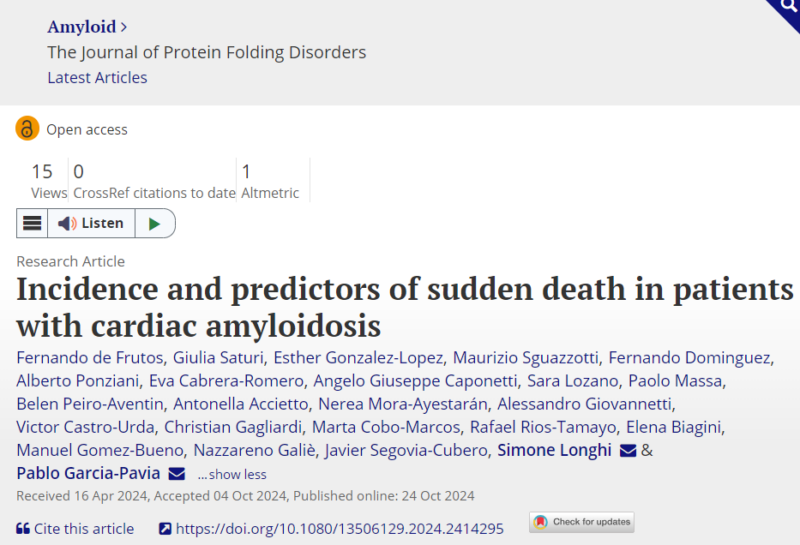Robert Orlowski shared on X:
“Myeloma Paper of the Day: Study of incidence and predictors of sudden death in ptatients with cardiac AL amyloidosis finds 8.0% rate 2 years, with betablockers and NYHA class III-IV independently associated with increased risk after age-adjusted analysis.”
Incidence and predictors of sudden death in patients with cardiac amyloidosis
Authors: Fernando de Frutos, Giulia Saturi, Esther Gonzalez-Lopez, Maurizio Sguazzotti, Fernando Dominguez, Alberto Ponziani, Eva Cabrera-Romero, Angelo Giuseppe Caponetti, Sara Lozano, Paolo Massa, Belen Peiro-Aventin, Antonella Accietto, Nerea Mora-Ayestarán, Alessandro Giovannetti, Victor Castro-Urda, Christian Gagliardi, Marta Cobo-Marcos, Rafael Rios-Tamayo, Elena Biagini, Manuel Gomez-Bueno, Nazzareno Galiè, Javier Segovia-Cubero, Simone Longhi, Pablo Garcia-Pavia.

Other posts featuring Robert Orlowski on OncoDaily.
Robert Orlowski, M.D., Ph.D., holds multiple positions at The University of Texas, MD Anderson Cancer Center including Chairman, Ad Interim Director of Myeloma, and Professor of Medicine in the Departments of Lymphoma/Myeloma and Experimental Therapeutics within the Division of Cancer Medicine.Additionally, he chairs the SWOG Barlogie/Salmon Myeloma Committee, which is part of the National Clinical Trials Network, dedicated to advancing new therapies and understanding the biology of myeloma.
Dr. Orlowski’s expertise lies in both clinical practice and scientific research, with a particular focus on translating laboratory discoveries into effective treatments for patients. He investigates drug resistance mechanisms in myeloma and seeks to identify predictive biomarkers for treatment response.Notably, his past contributions include leadership roles in developing proteasome inhibitors like bortezomib and carfilzomib, as well as monoclonal antibodies such as daratumumab and elotuzumab.


